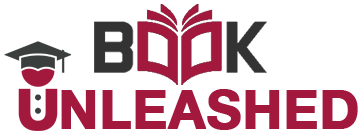In the ever-evolving landscape of education, customized learning has emerged as a pivotal approach, revolutionizing how we perceive and engage with educational content. At the heart of this transformation are innovative educational tools that cater to individual student’s diverse learning styles and paces, ensuring that education is not a one-size-fits-all model but a tailored experience that maximizes each learner’s potential.
The Rise of Personalised Education
Understanding Individual Learning Styles:
Every student processes information differently. Some are visual learners, while others excel through auditory or kinesthetic means. Customized learning tools are designed to identify and adapt to these varying styles, offering a more inclusive and effective learning environment.
Pacing and Flexibility:
Traditional educational models often operate on a fixed curriculum pace, leaving many students struggling to keep up or feeling unchallenged. Adaptive learning technologies allow students to learn independently, ensuring that each concept is fully understood before moving on.
How Customized Tools are Shaping Learning
Interactive Platforms:
From gamified learning apps to interactive eBooks, these platforms engage students more dynamically, making learning informative and enjoyable.
Data-Driven Insights:
These tools often come with analytics capabilities, providing educators with valuable insights into each student’s progress, strengths, and areas needing improvement.
Collaborative Learning:
Many of these tools support collaborative projects and discussions, fostering a sense of community and enhancing communication skills.
Accessibility:
With the aid of technology, learning resources are now more accessible than ever, breaking down geographical and physical barriers and reaching a wider audience.
Real-World Applications and Success Stories
Case studies and testimonials from schools and institutions across the globe paint a vivid picture of the impact of these tools. Students who once struggled are now thriving, educators are better equipped to meet individual needs, and classrooms have transformed into hubs of engagement and innovation.
Conclusion
The shift towards customized learning is not just a trend; it’s a necessary evolution in our approach to education. By leveraging the power of adaptive educational tools, we are enhancing the learning experience and preparing a generation of students for a future where adaptability, critical thinking, and personalized skill sets are paramount. As we continue to embrace and develop these tools, the possibilities for what education can achieve are limitless.


